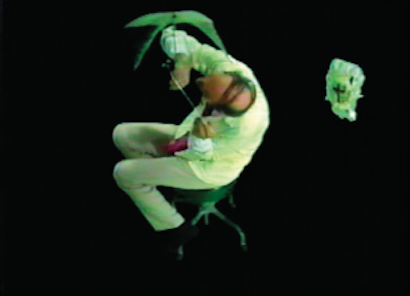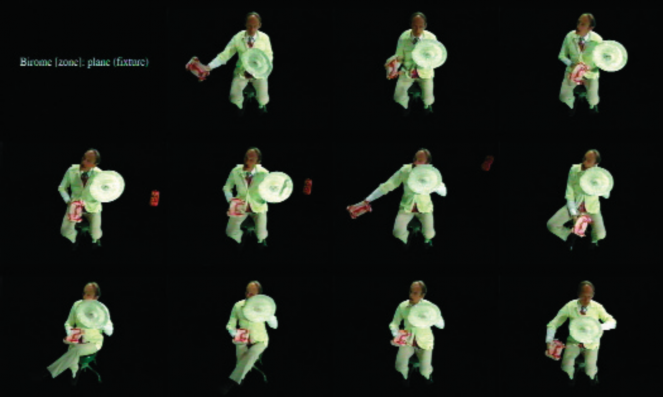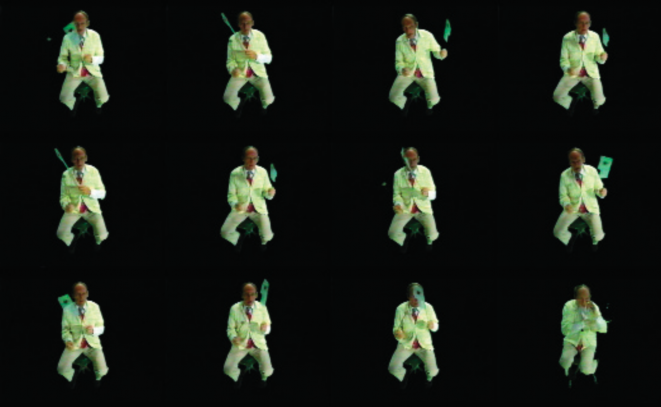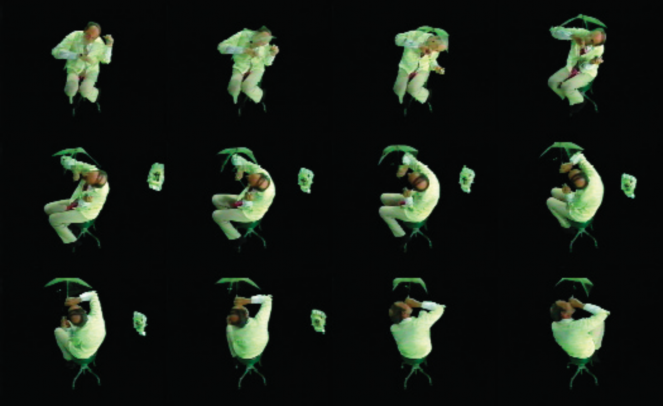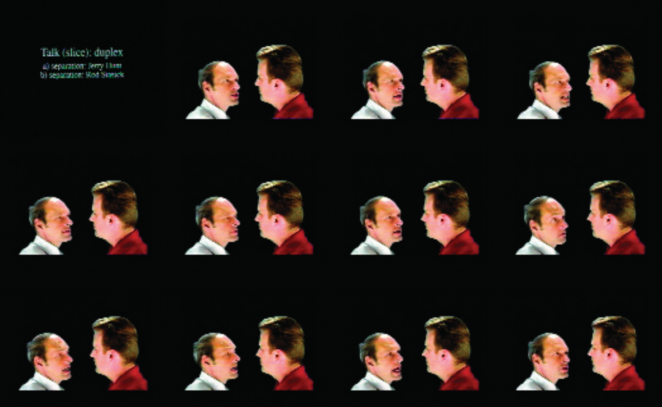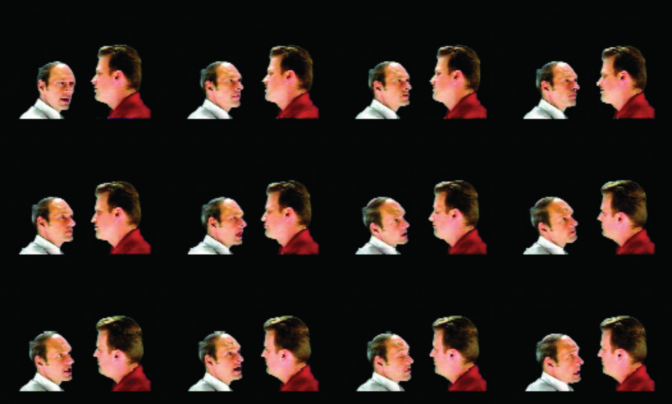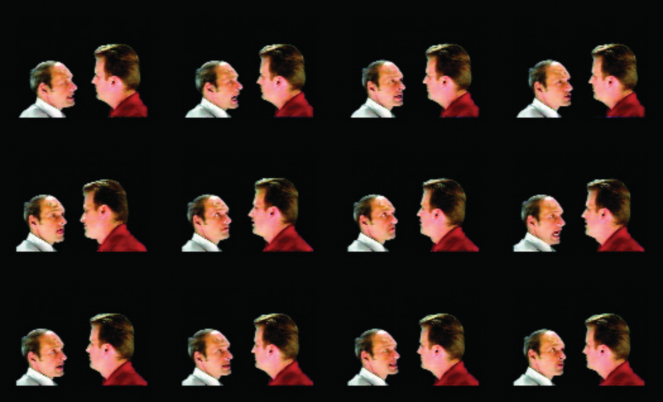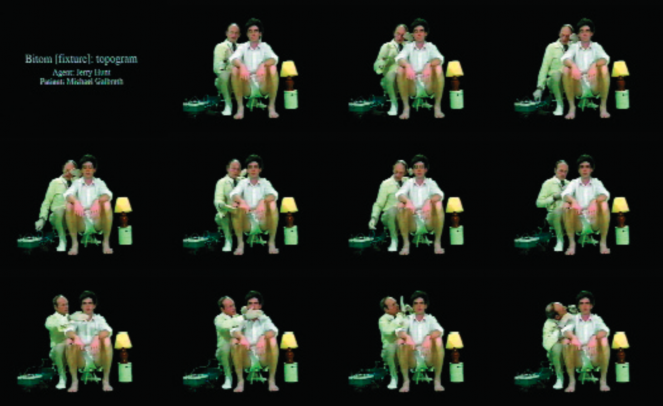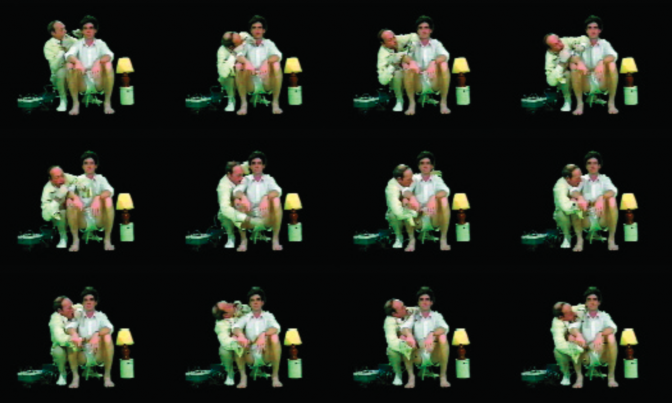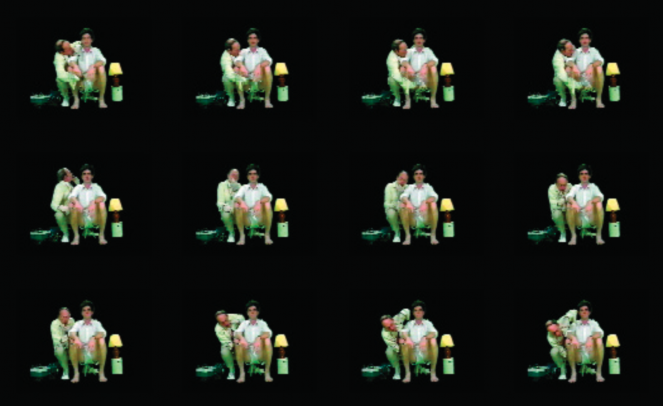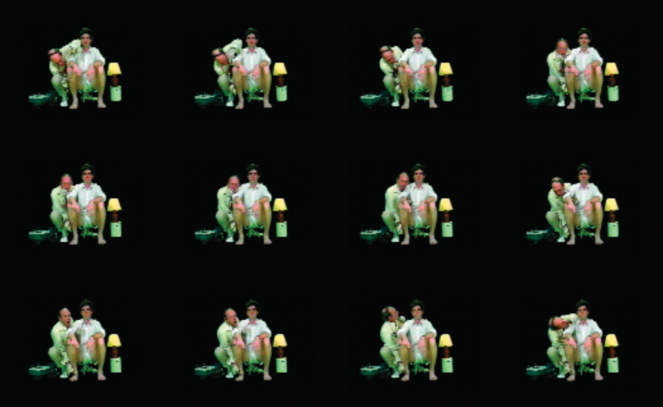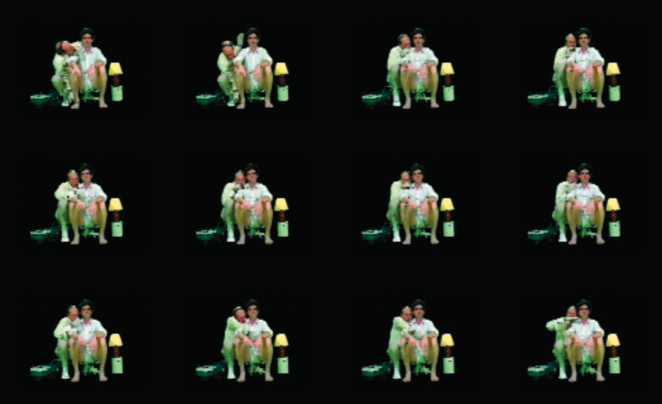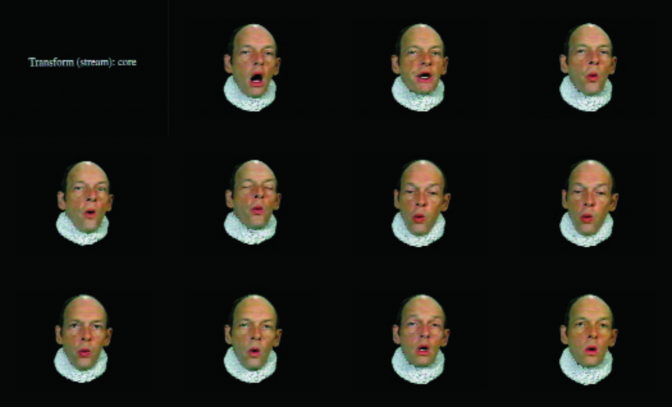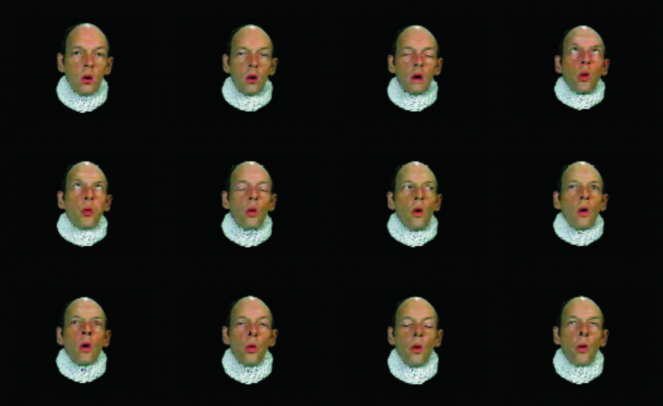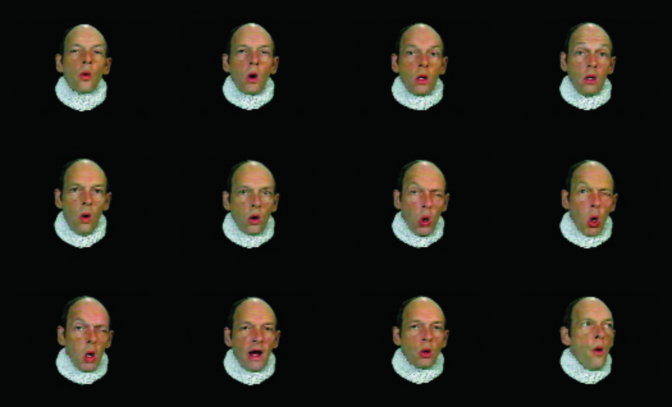A Love Transaction
Maile Chapman
It takes us hours to get everything cleaned up. I do the lighter jobs. He does the heavier jobs. He does anything with lifting, anything with twisting, anything that I can’t do because I am prone to having cramps around the baby-thing. The entire area is sore, and lifting is bad, it provokes the pains down there. I have never told him about my health condition but I assume he must have guessed that I am not completely normal. I know he makes it easier for me, and in exchange I let him hurry me through. He has a standing plan for after work. It is probably a girl, I don’t know, I almost don’t want to know, I never ask and he never volunteers.
If he wants to know about it indirectly, he can find out from the office manager. She’s the only one I’ve told, and I only tell her about my situation when it affects my job. Even then I don’t tell her everything, not too many details. So far I have only told the minimum, that it pinches inside when I have to lift the metal gates and drag the hose out. I told her about the pressure from the baby-thing and the problems caused by the partial bones, because although they are small, and soft, it’s uncomfortable when I have to bend down to do the gutters in the indoor runs.
We can have him do it for a while, she says. She seems sympathetic, but people don’t really want to know the private story. I am sure it makes her want to go home and get away, get comfortable. She’s got a husband. That’s what she says, she likes to go home on time so that she can see her husband. But sometimes she stays a few extra minutes to check in with us. With me, since he’s usually already started on something. He doesn’t talk at all during the first part of the shift. He sweeps, then turns on the waxer and guides it away from her, pretends he can’t hear when she says it’s time to have a word. So I listen. She tells me whether there are any overniters in the back, how many, what the special needs are. Someone puts a towel over their doors before we arrive so that we don’t upset them with the equipment. We never even see them.
She slips on her belted raincoat while she goes over the details. She takes her purse out of the bottom drawer of the file cabinet, takes her keys off the hook. She wants to leave in her high-heeled shoes before the floors get wet. I have tried to get him to talk about her, I thought that maybe there was an attraction there, I thought maybe that’s why she made the point to stay around a little, to see him, to try to talk to him over the hum of the waxer. When I brought it up he looked at me like I was crazy. Which was an answer that made me happy.
We have a pattern of activity together. While he does the indoor runs and the floor I go out back and dump the small boxes of waste. I take the outdoor broom to the fenced area and flip any stools into the bushes. After a while he comes out to smoke and I stand there a minute because he might say something, now that the worst part of the cleaning is over. Then I go inside to bleach the exam rooms and do a general wipe-down. When I’m almost done he gets on the phone. He has a conversation with someone, with whoever it is that waits for him every night. When he hangs up he says, are you almost finished? By then I am checking on the overniters. He won’t have anything to do with that. He won’t go near the berths, doesn’t want to get that close. I put an ear to each, making sure I hear the breathing. We get ready to walk out the door together. He waits while I set the alarm, and then we’re done.
Depending on his mood he will let me give him a ride somewhere. He likes to get out at a certain intersection midway between the clinic and where I live. He points and I pull over. At the intersection are a gas station, a tavern, and a dark apartment complex. He waits until I pull away before he starts walking. I’m sure he goes into the apartment complex. It is a poor-looking place. I think there’s a girl in there, waiting. I know that he thinks I’m spoiled because I have the car. He doesn’t understand the necessity. I can’t do the walking that he does. I try to tell him this while we drive but I want to keep it vague. I always hope that when we talk he won’t ask openly about my health. Saying too much about it would give the wrong impression, especially under the circumstances, he and I alone together in the darkness of the car.
I have appointments I need to get to, I say. I have to drive. I can’t do the walking, for my medical reasons. I really can’t.
He looks away out the window. He says, that’s probably not any of my business.
I hope he won’t make me say more. The best I can do is to think about my situation as hard as I can, and hope he picks up on it. I picture the proteins, the spotty tissues all sealed together. The baby-thing with hair and teeth comprising twenty percent of it. I think about how much I don’t want to describe it to him just then. How much I want to be natural and not suggestive with my details. And he has mercy. I think he sees how it is with me. I think he knows that it isn’t my fault, that it was a sterile happening, and that despite everything, I’m still a very nice girl. By this I mean that I have a good heart, and could be helpful. He could ask me for anything, and I’d give it to him.
The office manager waits and talks to me in private. First she asks about my health, and I tell her that none of the doctors is telling me anything new, that it’s going to be surgery eventually. Even though I don’t want to take the time off. She says that I can cross that bridge when I come to it. Then she asks how it’s working out to have both he and I doing our shifts at the same time. I say that it works well. She asks whether it isn’t too distracting and whether it isn’t taking us too long to finish. Distracting? Did he say that? I am careful to be neutral. I ask her whether he has made any comments about me. Her kindness wavers and I see envy in her face. Not in so many words, she says. He’s concerned with getting out on time.
We always get out on time, I say.
We’ll talk again later, she says, getting ready to leave.
But I know that something is going on. He’s been thinking it through on some level or he wouldn’t have said anything about me, one way or another.
I stay out of his way, to make him wonder, to make him notice my absence when he goes out back to smoke. In the exam rooms I listen for him. I know that he is right there. I know that he is being careful not to think about me. My heart expands. The baby-thing shifts with excitement so that I have to stop and steady myself against the stainless steel table. I am almost sick with all of the possibility, all of the potential for happiness.
Nothing changes for several days, except that I avoid him. I find myself taking more time with the overniters. Adjusting the draping over the recovery area, repositioning the green mesh over the heatlamps.
Then I arrive and he is smoking outside in the parking lot. When I walk in he follows and goes into the back. The office manager is waiting. She says, he won’t listen to me. Can you make sure that he knows there’s a leak in the big room? He simply won’t listen to me.
Runoff water is coming from somewhere. I can hear it hitting the floor.
She says, for god’s sake get it mopped up.
The concrete walls are painted white. Water runs down them like glaze. I hear him turn on the waxer in the back.
He’s going to be electrocuted, she says. I tell her that I will take care of the water. I promise. She wants to leave, and I want her to leave, to go home to her husband, to leave us alone.
When she is gone I bring towels from the utility room, dirty towels from the bin, I’m touching them with my bare hands but I don’t care. The water slowly accumulates in the corners. I need more towels. Just leave it, he says. I’ll do it.
There is a chill from the seeping water. I listen to the overniters and check the controls on all of their heating pads. I turn them each up by one setting. Not too much, otherwise the overniters who can’t move will become dangerously overheated or even burned. Sometimes they are too weak to shift themselves off the pad. I hear him in the next room, moving towards the phone, making his usual call. I don’t look under the toweling but I can hear stirrings behind the bars when I pause outside each berth.
He is on the phone. He says, did you find out?
There is nothing but the sound of water, and then he says, I don’t believe it.
There are jerky movements in the last recovery berth, the sound of nails against stainless steel. I move the toweling a little. I make larger movements than necessary, to catch his eye and remind him that I am here but he doesn’t notice. He stares straight down at the phone. He says, are you sure? His voice gets lower; are you sure? Okay, he says finally. Okay, but stop. If you’re sure then crying won’t help now. He hangs up. I repeatedly adjust the toweling. It is light pink, frayed around the edges. I tuck it more securely around the frame of the door.
I keep my back to him. I am giving him the chance to make up his mind about something. My fingers are between the bars for a long moment during which I hear nothing from him in the room behind me. I try to maintain my calm. I hear the nails again faintly and I am afraid that the overniter is about to touch my fingers. Maybe bite my fingers. But I know they are all delirious, not even aware of me.
He pulls the waxer away from the wall. Pauses.
Can you give me a ride somewhere? he says. It is the first time he has had to ask.
Of course, I say. Inside I feel a mounting pressure. I slide my fingers further into the cage. Labored breathing. Delirium.
He puts the equipment away, the floors undone. He lines the corners and baseboards with rags to catch the seepage. He is on his knees.
I do the exam rooms, fast. He is waiting. He is nervous. He can’t stand still and goes outside. I step out of the building, lock the door. Set the alarm. Push the buttons. He throws his cigarette into the gravel and we get into the car.
I drive him to a cash machine where he withdraws the maximum allowed. Then he asks me to take him to another cash machine nearby, where he attempts to make another withdrawal. He has reached his daily limit. He reads the screen, appears not to understand. He tries again but can’t take out any money. He gets back into the car, waits, and then asks me to drive him to another cash machine.
By now it is dark out. I tell him it’s no use, that no machine will let him take more. He says he has to keep trying. He won’t look at me. I know he is thinking that I don’t understand, that I can’t understand the frustration.
How much? I say.
His hand twitches on his leg.
I don’t know, he says. Anything.
I step out of the car with my purse, take out my debit card. It slides neatly into the machine. My fingers feel swollen when I press the numbers. I know what kind of gesture this is. I would take it all out, if it weren’t for the limit, and so I go that far, and will give it to him in crisp new bills. I get back into the car and sit beside him. Breathless. My hand touches his when he takes the money. His eyes look shiny and red. I feel a pulsing everywhere, a throbbing even in my throat, because now I know that eventually I will have him. Now I know that the girl in the apartment complex will be easy enough to forget, it will only take money to fix that situation. And I never even had to bring up the baby-thing. All of that has been left undescribed – there is still all of the telling to look forward to. I’m thinking about the patience he will have to have, and the secret things he will do for me when we are alone together in a safe place. I have to sit and hold it in for a second before I can drive, before I can even turn the key, because of the movement, the excitement, the hidden cartilage twisting in anticipation of him.

